In this article
If your feline friend is unwell and has an infection, your veterinarian may give them an injection of Convenia alongside other treatments. So, what is Convenia? When is it used? And what side effects should you watch out for? In this article, we explain all about Convenia injections for cats.
Key Points
- Convenia is the brand name of a medication for cats and dogs called Cefovecin.
- Cefovecin is a long-acting antibiotic that can be used for certain infections.
- Convenia is made by the pharmaceutical company Zoetis.
- Convenia is a prescription-only injectable medication, so it needs to be prescribed and administered by your veterinarian.
- Convenia is stored as a separate powder and liquid, which are combined before use.
- Convenia contains 80 mg/ml of Cefovecin when it is prepared.
- Convenia is licensed for use in cats and dogs over 4 months of age.
- By law, Convenia can only be administered if prescribed by a licensed veterinarian.

Uses of Convenia For Cats
Convenia is a long-acting antibiotic, its half-life in cats lasts for 7 days from the day of injection, and its concentration will continue to decline until about 14 days. This makes it a valuable option for pet parents who struggle to give their cat tablets or liquid medication consistently. However, despite being convenient and easy to use, it should only be used in certain situations.
In cats, Convenia is indicated to treat skin infections and abscesses caused by a particular bacteria: Pasteurella multocida.
Although Convenia is only indicated to treat infections caused by the above bacteria, in cats. This antibiotic use can sometimes be justified for other types of infection. For instance, cats who are feral, aggressive, or intolerant of tableting, or cats who have bad teeth, inflamed gums, or mouth tumors, for whom tableting would cause unnecessary pain.
Convenia is often used “extra label” to treat skin and dental infections or abscesses caused by Fusobacterium spp., Bacteroides spp., Prevotella oralis, β-haemolytic Streptococci and/or Staphylococcus intermedius. In addition, it is often used for the treatment of urinary tract infections caused by E. coli.

How Is Convenia Given to Cats?
Before its first use, Convenia needs to be reconstituted. The package contains a vial of powder and a vial of liquid. The entire vial of liquid should be added to the vial containing the powder to prepare the solution. Once added, the vial should be gently shaken to dissolve the powder thoroughly. Before and after reconstitution, Convenia must be stored in a refrigerator and protected from light by placing the vial back in its box. Once the Convenia solution has been prepared, it must be discarded after 56 days.
Convenia is given to cats via an injection under the skin. This is generally given in the scruff of the neck but can be given wherever there is loose skin. It is given at a dose of 8 mg of Cefovecin per kg of body weight, which works out as 1 ml per 10 kg. This dose is also the same for dogs.
For most infections, a single dose of Convenia, lasting one week, is sufficient, the laboratory recommends a one-time-only single dose for cats.
How Does Convenia Work?
Convenia is Cefovecin, which belongs to a group of antibiotics called cephalosporins. Cephalosporins are divided into different generations. This reflects how much their structure has been altered compared to their original form, which was derived from mold. First-generation cephalosporins are the original structure, whereas subsequent generations have been modified. These modifications can make them more effective or help them work against a larger spectrum of bacteria.
Cefovecin is a third-generation cephalosporin, which is effective against a large range of bacteria. However, because of the risk of antibiotic resistance, it should only be used in appropriate circumstances. Appropriate use would include when first-line antibiotics have failed or when a swab and culture result of the infected tissue shows that it is needed.
Cefovecin prevents bacterial growth by stopping cell wall formation. The reason why it is so long-acting is that it binds to proteins, allowing it to remain in your cat’s system rather than being broken down.
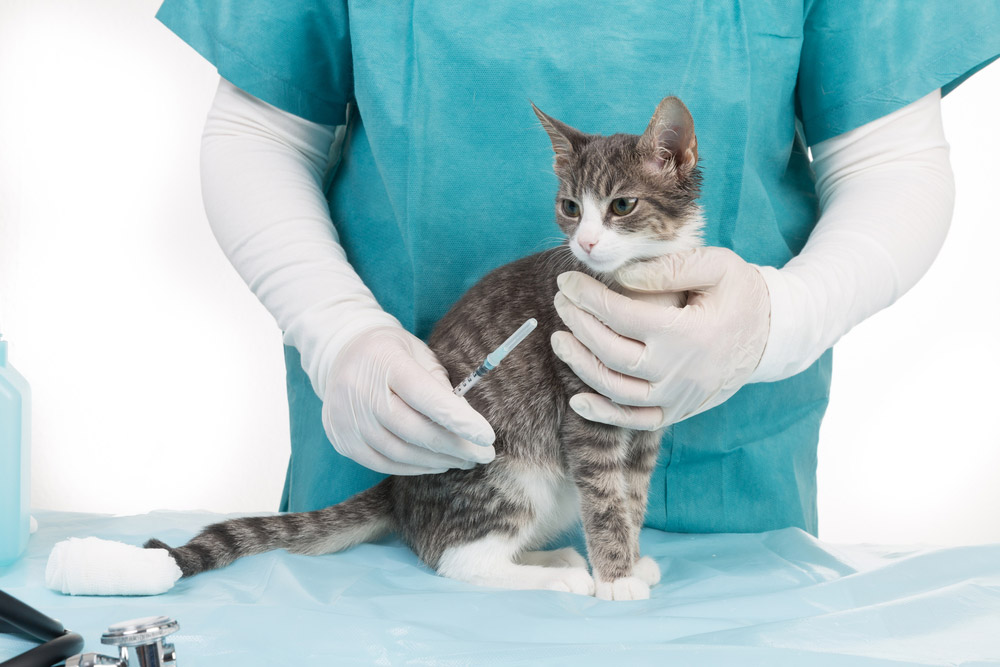

What Are the Side Effects of Convenia?
One concern regarding penicillin or cephalosporin-based medications is the risk of allergy in either the patient or anyone handling the drug. Thankfully, because Convenia is injectable, it is not a risk to the pet parent, whereas tablets could be. As with any medication, there is a risk of an allergic or anaphylactic reaction, but this risk is very minimal.
Slightly more common side effects include vomiting, diarrhea, or reduced appetite, but these are still relatively rare. There are also occasional reports of neurological signs like seizures or incoordination; however, these are very rare. There have been instances where Convenia has been reported to interfere with the bone marrow and its production of red and white blood cells, but again this is a very rare side effect. Inappropriate urination and hyperactivity have also been reported on single occasions.
Because Convenia is stored in the refrigerator, some cats react to the cool sensation when the injection is given. Otherwise, the injection is not expected to be painful, but there are occasional reports of inflammation of the area where the injection has been given.
Does Convenia React With Other Medications?
Because Convenia binds to proteins, which allows it to remain in the body for longer, it can sometimes interfere with other medications that similarly bind to proteins. Drugs, including some anti-inflammatories and diuretics, can also rely on protein binding. Therefore, competition with other medicines to bind with proteins could cause either medication to be less effective.
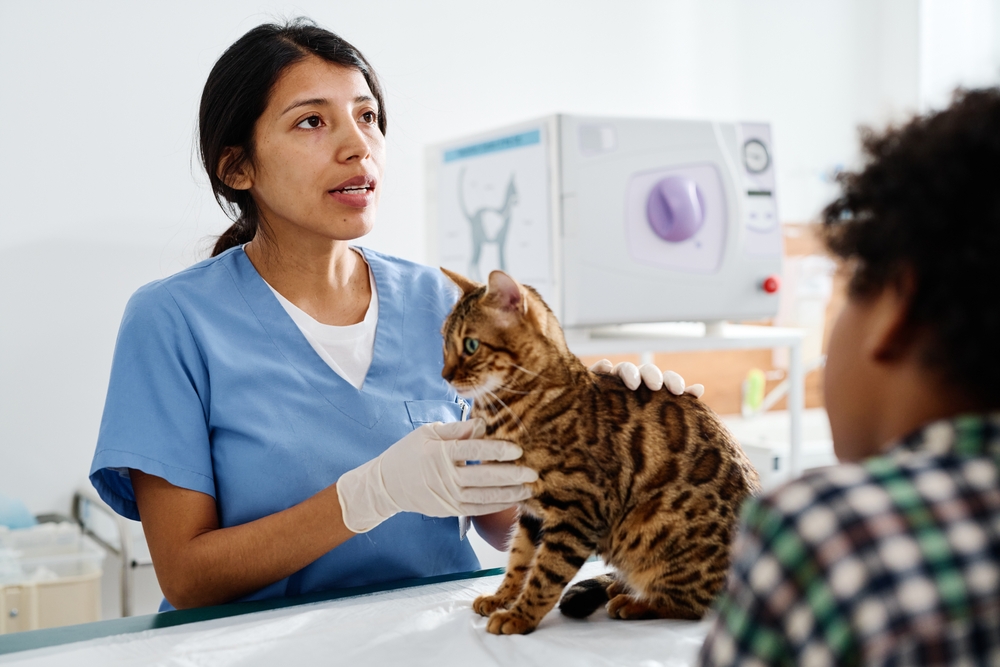
When Shouldn’t Convenia Be Given?
Convenia isn’t licensed to be given to kittens under 4 months of age, and studies haven’t yet been performed to prove it is safe for pregnant or lactating cats. Similarly, it should be avoided, where possible, in cats with severe kidney failure because its safety has not been established.
Cefovecin is not a first-line antibiotic, so its use should be reserved for cases where first-line antibiotics have failed. Ideally, the use of Cefovecin should be justified by bacterial culture testing to minimize the risk of antibiotic resistance.
Convenia should not be given to a cat if not specifically prescribed by a licensed veterinarian.

Frequently Asked Questions
What is Convenia used for?
Convenia is used to treat skin, soft tissue, and urinary tract infections caused by certain bacteria. These include Pasteurella, Bacteroides, Fusobacterium, Prevotella, E. coli, Beta hemolytic Streptococci, and certain Staphylococci.
How long does Convenia take to work with cats?
Although the concentration of Convenia in the bloodstream reaches the therapeutic level 2 hours after injection, it can take 12 to 48 hours for signs to begin to improve.
How long does Convenia last in cats?
Convenia has a half-life of seven days in cats and although the concentration declines it may last up to 14 days, which is sufficient time to resolve most infections. A one-time single dose is recommended for cats.
Is it safe to use Convenia for cats long-term?
Convenia is licensed as a single injection, which is only recommended for use one time in cats.. In rare situations where antibiotic treatment is required for longer than 4 weeks, your veterinarian may decide to repeat the injection. However, Convenia should only be used as a continuous course and shouldn’t be used long-term due to the risk of antibiotic resistance.
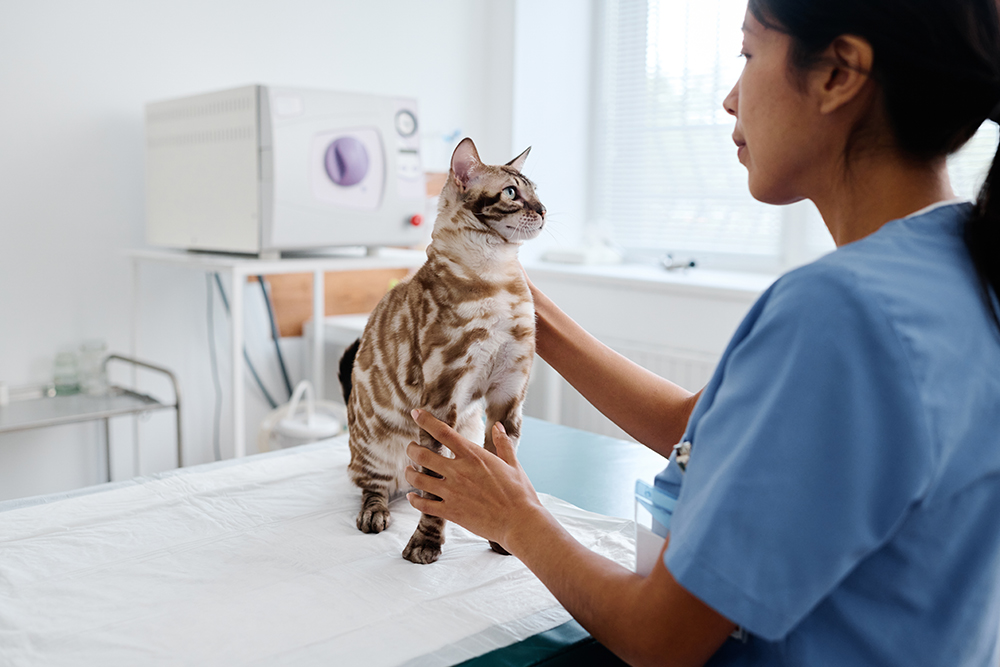

Summary
Convenia is made by the pharmaceutical company Zoetis and is the brand name of an injectable antibiotic called Cefovecin. Cefovecin is a third-generation Cephalosporin antibiotic, reserved for use where other first-line antibiotics haven’t worked. A single injection of Convenia lasts for 14 days, making it very convenient instead of having to give daily pills to your cat.
Convenia is indicated to treat skin and soft tissue, and it may be also used for urinary tract infections caused by certain bacteria. It can also be helpful when treating cats who won’t take oral medication. However, the ongoing threat from antibiotic resistance in human and veterinary medicine means that Convenia should always be used responsibly, with appropriate justification from your veterinarian.
Related Reads:
- Clavamox for Cats: What it is and Side Effects (Vet Answer)
- FVRCP Vaccine for Cats – What Is It and Do Cats Need It? (Vet Answer)
- Pyrantel Pamoate for Cats: Our Vet Explains Dosage, Uses & Side Effects
Featured Image Credit: Prostock-studio, Shutterstock
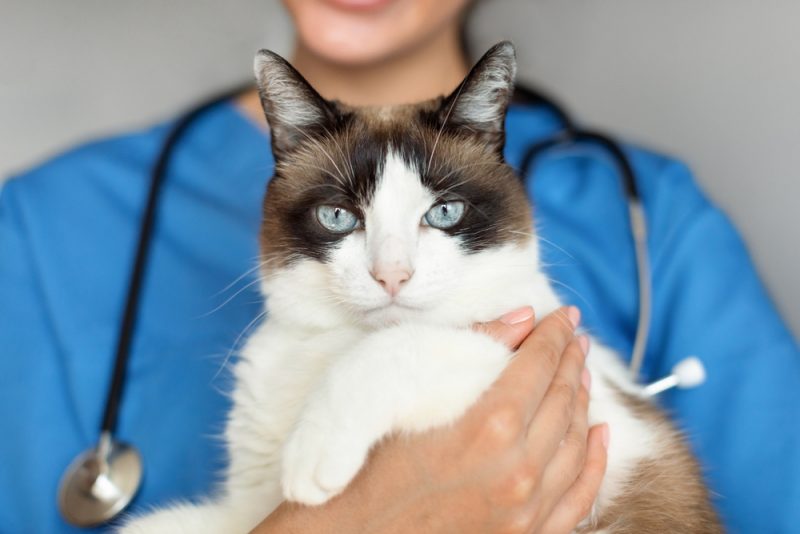


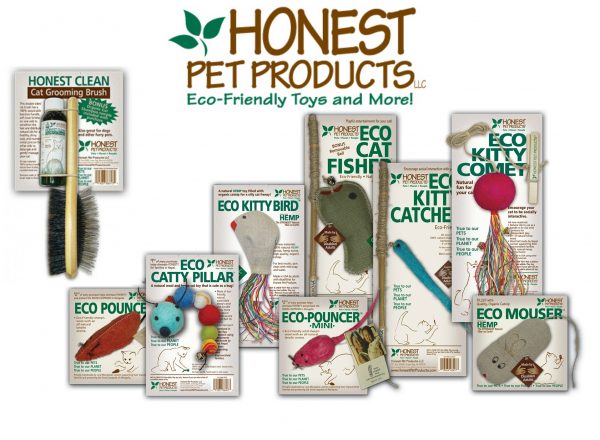
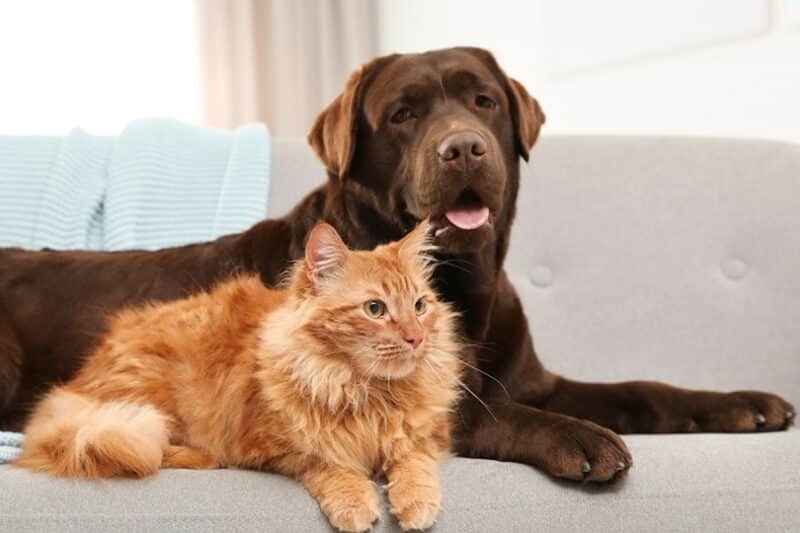
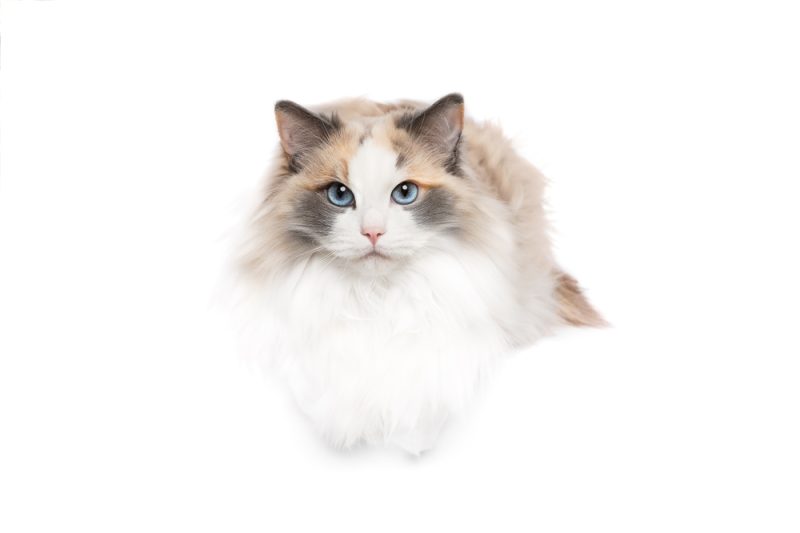
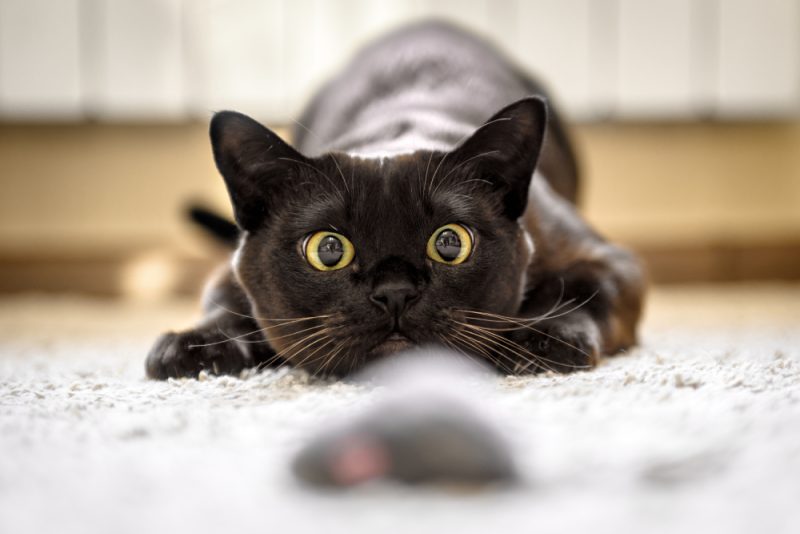
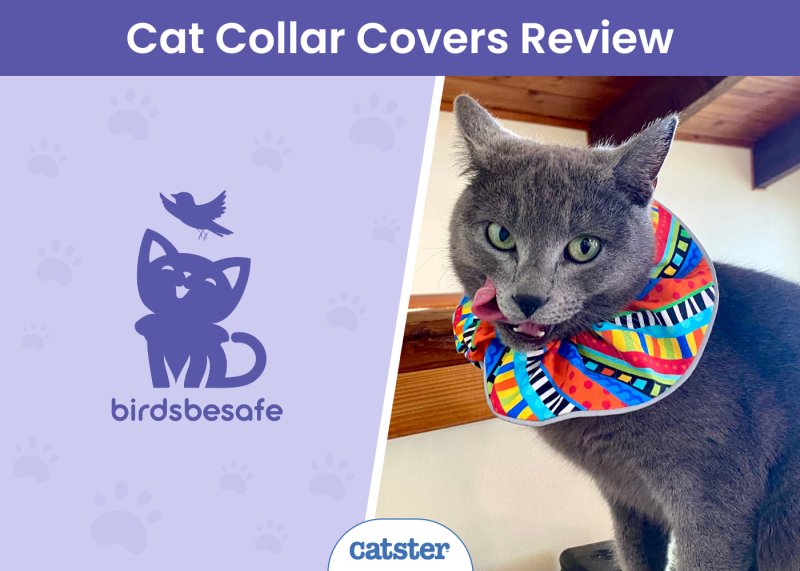
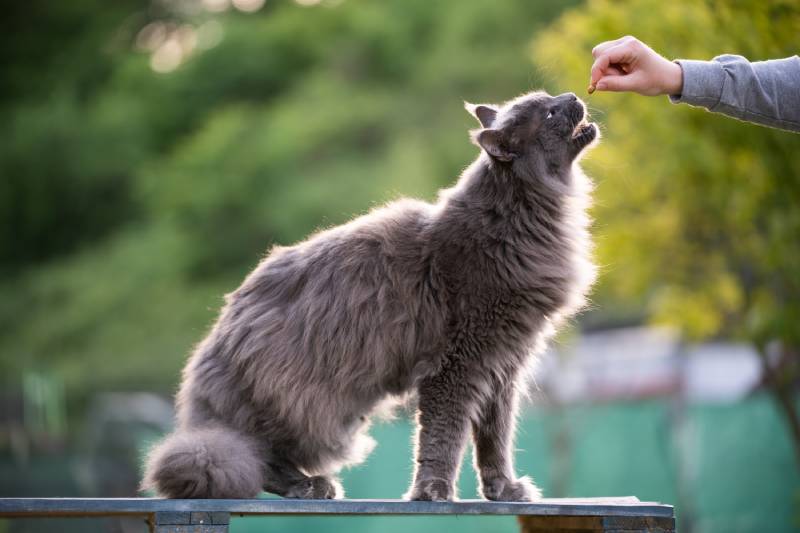
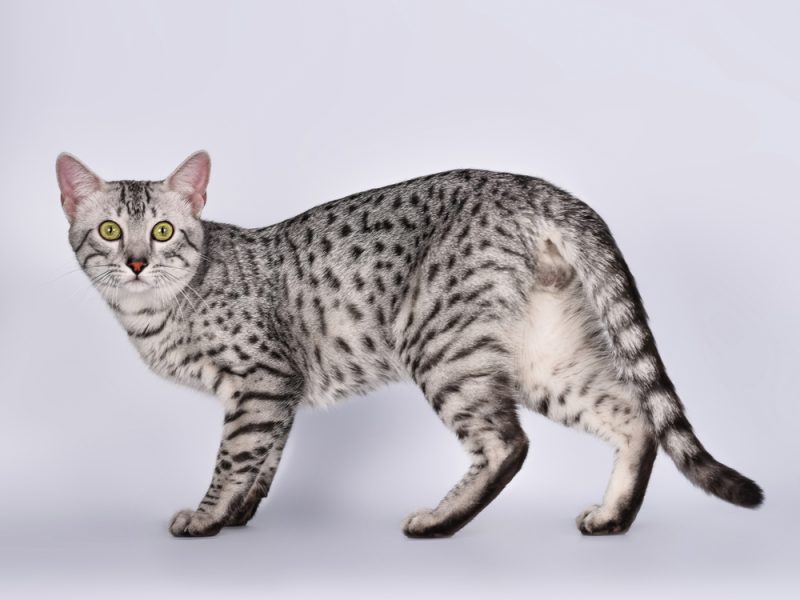
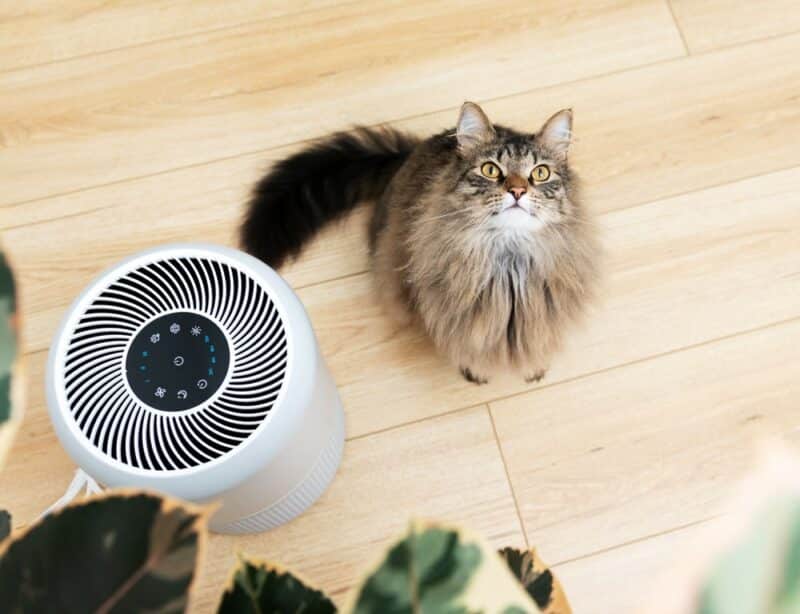
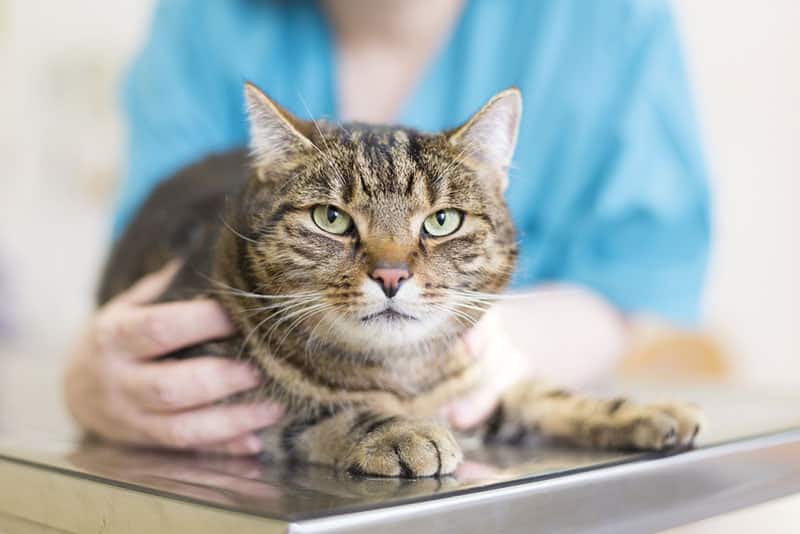
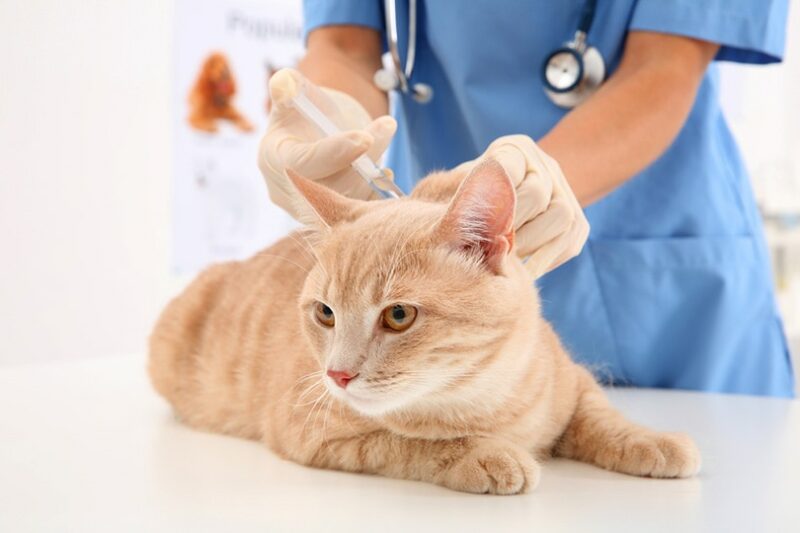
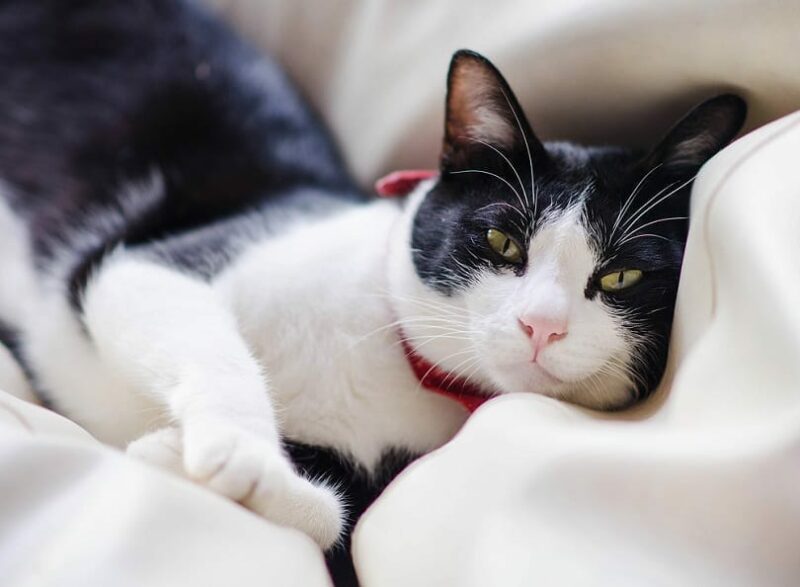
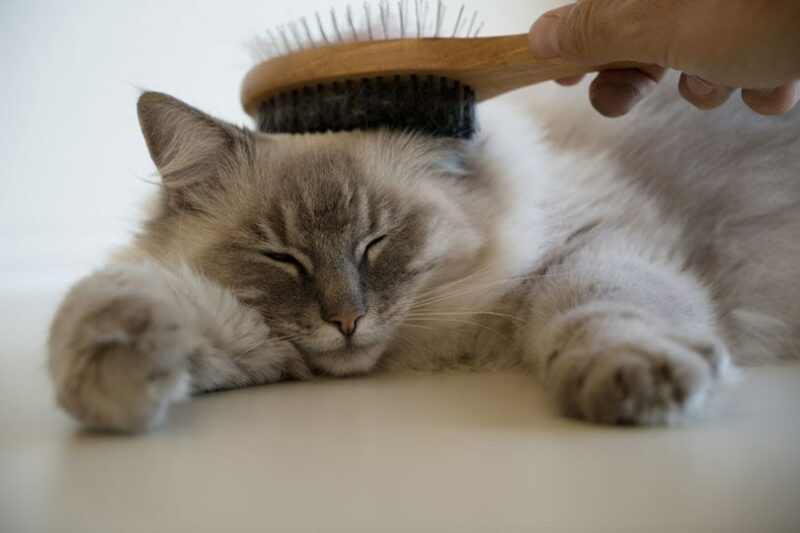

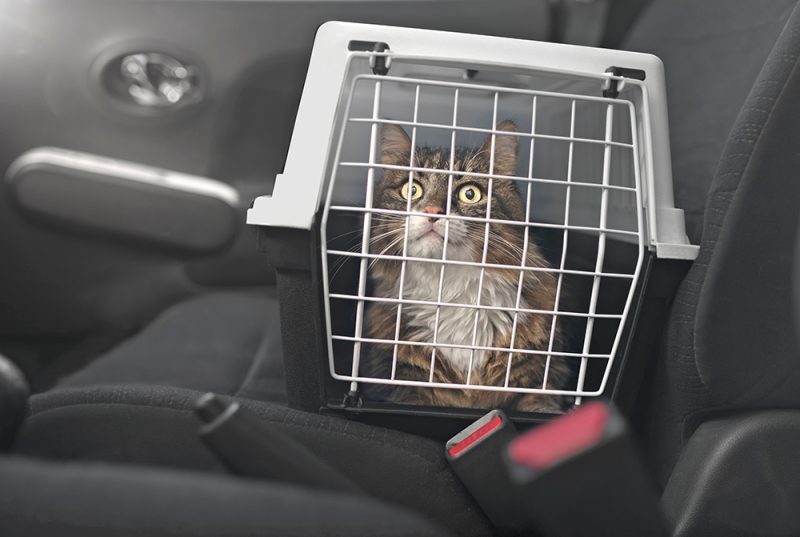
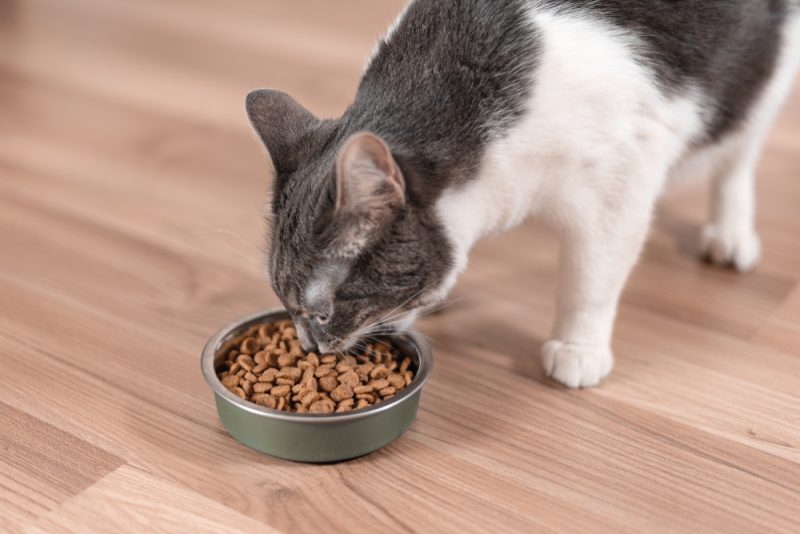




14 Responses
My 15-yo kitty got a Convenia shot on Monday, 14 July 2025. On Friday, 18 July, I noticed her eye color had changed from light green to gold. Can that be a side effect of the Convenia?
Hi Terry Pacelli, it sounds like you need to speak to a vet. If you are unable to ask the vet applying the treatment, please consult with one of our vets at www.pangovet.com
My cat was given Convenia 3 weeks ago. He has had loose stools and diarrhea since then. The vet prescribed Proviable which didn't help and then Metronidazole which didn't help. Then Tylosin powder he would not even go near no matter what I mixed it with. I'm currently giving him Purina Fortiflora. He's been taking it for 5 days and the stool is still soft. I feel that my cat has been poisoned from Convenia.
Oh no, so sorry to hear about your kitty! We totally get how worried you must be. Just a heads-up, we're all about sharing info on cat stuff here at Catster, but we're not actually connected to the companies that make them. We really hope your furry friend feels better soon!
If you're not feeling great about the vet care right now, maybe getting another vet's opinion could help. And if you think the medicine might be the issue, the vet who prescribed it needs to let the FDA or the company know. Fingers crossed your cat makes a speedy recovery!
My cat received the shot 2 days ago for a bite on her tail. She is still going crazy trying to get to the wound. I noticed the puncture bumps are still pretty pronounced. Is it normal that they are still swollen?
Hi Lindsey, sorry to hear about your cat. It sounds like you are looking to speak to a veterinarian right now. In that case, please book through www.pangovet.com. They will be able to help you address the urgency of the problem and guide you through the best next steps.
I’ve had a great experience with this drug and my cat. She is 14 and has been drinking and eating like crazy…then throws up a lot. Checked her thyroid and sugar normal. Tried probiotics and hair ball remedies. Changed food and went to filtered water. Nothing helped. I was cleaning up multiple spots of vomit every day. She was always hungry and thirsty, but otherwise acted normal. The vet gave her this shot on Monday. She threw up 3 times when we got home. This is Thursday and she hasn’t thrown up since Monday, and she seems satisfied and drinks less.
This stuff should be banned!! My cat is doing horrible. I wish I would have known!
Hi Cindy, we are sorry to hear about your cat. At Catster, we aim to help pet parents with information about products for cats but we are an independent company from any of the manufacturers. We hope your cat recovers.
I am personally sorry your cat had problems. Just because your cat had a bad reaction is no reason to NOT HELP OTHERS. It has been a miracle drug for mine! Not all vaccinations prevent disease either. Sad. People have no idea how wonderful modern drugs are and how many lives they have and will save.
My cat got an injection of this on Tuesday and stopped eating and drinking on Wednesday. I too her to the vet on Friday and they gave her a shot to settle her stomach. It is Saturday and she still isn’t eating or drinking. She got the shot at 11am Friday and it is 1pm Saturday now. Any advice??
Hi Paula. Sorry to hear about your cat. It sounds like you are looking for vet guidance here. A cat that is not eating in 24 hours is in danger of developing fatty liver disease, please update your vet.
How long can I expect my cat to continue to vomit after receiving Convenia? Vomiting started about 24 hours after injection. She is vomiting both food & water.
Thank you.
Sally a cat vomiting food and water is at high risk of dehydration, do not wait please let the prescribing veterinarian know. If you have no way of reaching them don’t hesitate to contact www.pangovet.com for advice on the next steps.